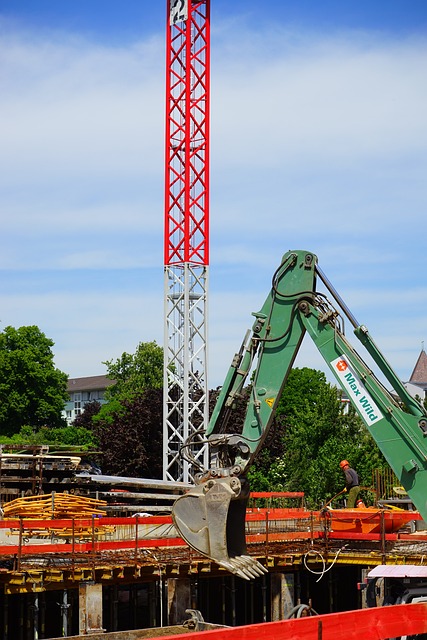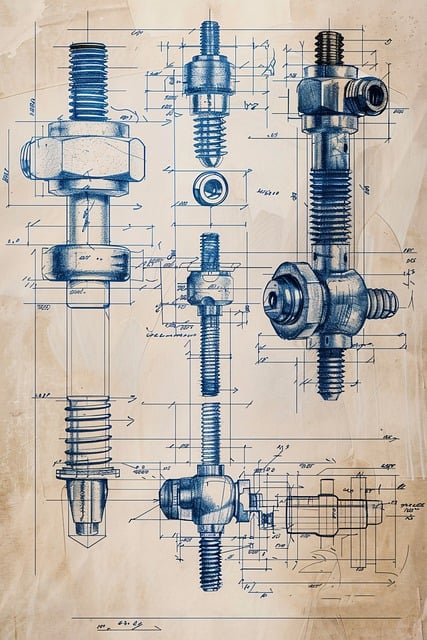Before pursuing aerospace engineering, assess your interest and aptitude through reflection on passions and strengths in STEM fields. Build a strong foundation in math and science by excelling in high-level courses and gain early exposure to aerospace concepts. Take AP classes for college credit and practical experience through STEM projects or internships. Familiarize yourself with aerospace software like CAD programs, flight simulation tools, and modeling programs. Hone problem-solving and analytical skills through advanced mathematics, logical reasoning activities, and structured methodologies.
Embarking on a journey towards a degree in aerospace engineering requires strategic preparation. This comprehensive guide is designed to equip aspiring engineers with the essential tools needed for success. From cultivating a passion for aviation to honing critical skills, we explore 10 indispensable tips. High school students will discover how to build a solid foundation in math and science, engage with advanced coursework, and gain practical experience. By following these steps and developing key aptitudes, future aerospace engineers can confidently transition from academic pursuits to university-level studies.
- Assess Your Interest & Aptitude for Aerospace Engineering
- Strengthen Math & Science Foundations in High School
- Enroll in Relevant Advanced Placement (AP) Courses
- Build Hands-On Experience Through Projects and Internships
- Familiarize Yourself with Aerospace Engineering Software
- Cultivate Strong Problem-Solving and Analytical Thinking Skills
Assess Your Interest & Aptitude for Aerospace Engineering

Before diving into your aerospace engineering studies, it’s crucial to assess your genuine interest and aptitude for this field. Aerospace engineering is a specialized and demanding discipline that requires a unique blend of technical skills, creativity, and problem-solving abilities. It involves designing, developing, testing, and maintaining aircraft, spacecraft, satellites, and other aerial vehicles. If you find yourself fascinated by the intricacies of flight, space exploration, and cutting-edge technology, this field could be an excellent fit.
Reflect on your hobbies, past experiences, and academic performance to gauge your affinity for science, mathematics, physics, and engineering concepts. A strong curiosity about how things work, a passion for problem-solving, and the ability to think critically are indicators of a promising path in aerospace engineering. Additionally, consider your willingness to commit to rigorous coursework, as this field demands a high level of dedication and perseverance.
Strengthen Math & Science Foundations in High School

Aerospace engineering is a field that demands a robust understanding of mathematics and science. While many core concepts are introduced during university studies, having a solid foundation in these subjects from high school will significantly benefit your learning process. Encourage yourself to excel in advanced placement (AP) or international baccalaureate (IB) courses like Calculus, Physics, Chemistry, and Computer Programming if available. These courses provide an excellent base for the mathematical and computational skills needed in aerospace engineering.
Focus on developing problem-solving abilities during these years. Practice regularly with complex equations and real-world application scenarios to sharpen your analytical thinking. Additionally, fostering a habit of staying updated with industry news and exploring basic aerospace concepts can spark early interest and curiosity, which will be invaluable as you progress through your university studies.
Enroll in Relevant Advanced Placement (AP) Courses

Enrolling in Advanced Placement (AP) courses during high school is an excellent way to get a head start on your aerospace engineering education. These college-level courses offer rigorous content that aligns with university-level expectations, allowing you to build a solid academic foundation early on. AP Physics, Calculus, and Computer Science are particularly relevant subjects for aspiring aerospace engineers as they provide essential knowledge in mechanics, mathematics, and programming—core areas of study in this field.
By taking AP classes, you can gain college credit, save on tuition costs later, and demonstrate your preparedness when applying to university programs. Many universities accept AP credits, allowing you to skip introductory courses or focus on more advanced topics during your freshman year. This strategic approach ensures a smoother transition into college and gives you the opportunity to explore various aspects of aerospace engineering at a faster pace.
Build Hands-On Experience Through Projects and Internships

Building hands-on experience is invaluable for aspiring aerospace engineers. High school students should start exploring STEM projects, both independently and through school programs, to cultivate problem-solving skills and a practical understanding of engineering principles. These initiatives can range from simple robotics competitions to complex design challenges, fostering creativity and the ability to apply theoretical knowledge in real-world scenarios.
Internships with aerospace companies or research institutions offer an even more immersive experience. They provide opportunities to work alongside seasoned professionals, learn industry best practices, and gain exposure to cutting-edge technologies. Internships not only enhance technical skills but also teach valuable lessons about teamwork, communication, and the day-to-day realities of aerospace engineering, making future university studies smoother and more focused.
Familiarize Yourself with Aerospace Engineering Software

Aerospace engineering software is an integral part of modern design and development processes. Before embarking on your studies, familiarize yourself with industry-standard tools. Programs like CAD (Computer-Aided Design) software, such as AutoCAD or SolidWorks, are essential for creating detailed 3D models and drawings. These tools enable engineers to visualize and simulate designs, ensuring structural integrity and aerodynamic efficiency.
Additionally, learn about flight simulation software and dynamic analysis tools that allow engineers to test the performance of aircraft under various conditions. Tools like MATLAB and Simulink are powerful resources for modeling, simulating, and analyzing complex aerospace systems, from control systems to propulsion mechanisms. Proficiency in these programs will give you a significant edge as you progress through your degree and future career in aerospace engineering.
Cultivate Strong Problem-Solving and Analytical Thinking Skills

Cultivating strong problem-solving and analytical thinking skills is paramount for aspiring aerospace engineers. These abilities are the foundation upon which complex design challenges, system optimization problems, and flight dynamics simulations are tackled. In high school, focus on mathematics courses that build a solid understanding of calculus, linear algebra, and physics. These subjects equip you with the tools to break down intricate problems into manageable components, analyze data, and derive solutions.
Beyond academic coursework, engage in activities that promote critical thinking and logical reasoning. Participate in science fairs, coding competitions, or robotics clubs where you can apply mathematical concepts to real-world scenarios. Developing a structured approach to problem-solving, including identifying root causes, evaluating alternatives, and implementing effective solutions, will serve you well throughout your aerospace engineering studies and career.
In preparation for a degree in aerospace engineering, cultivating a strong foundation in math and science, gaining hands-on experience, and familiarizing yourself with industry software are paramount. By assessing your interest, enrolling in AP courses, and developing problem-solving skills, you’ll be well on your way to a successful career in this dynamic field. Remember, the journey begins long before university; leveraging high school opportunities sets the stage for future aerospace studies and beyond.
